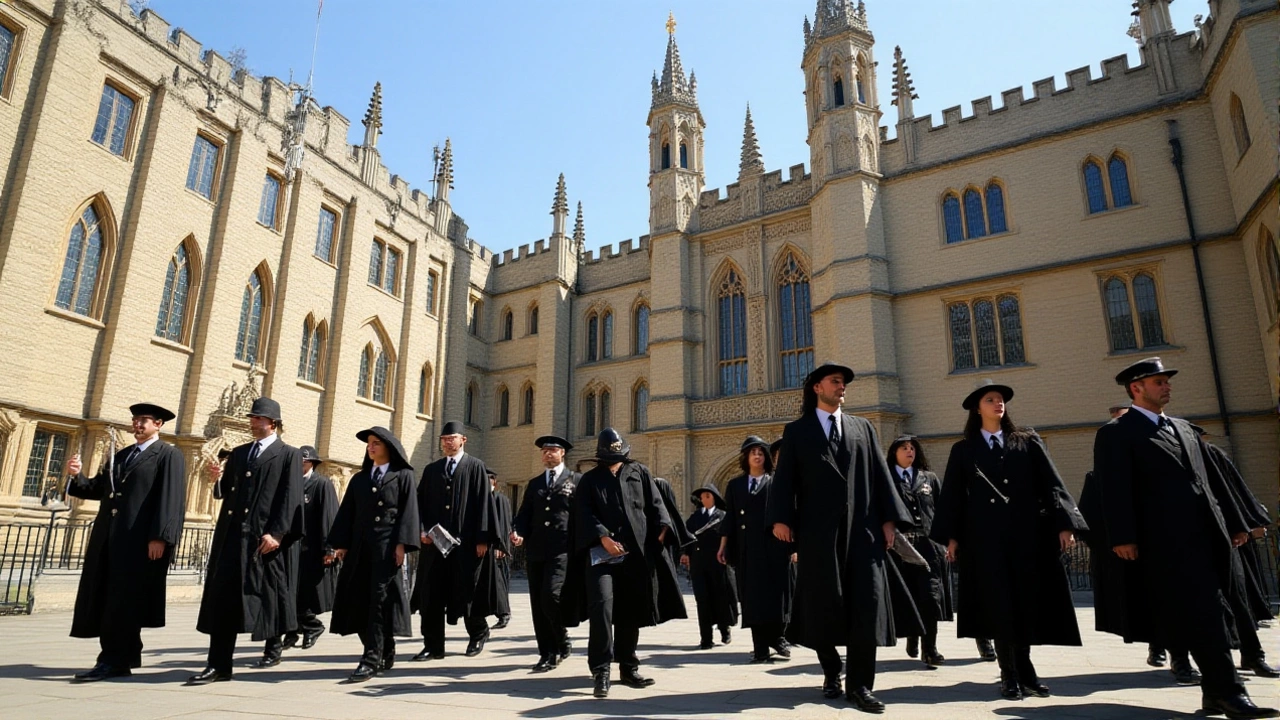When George Abaraonye, a 20‑year‑old PPE student at the University of Oxford, was ousted as president‑elect of the Oxford Union on 19 October 2025, the campus buzzed with disbelief.
The fallout began after Abaraonye posted on Instagram just hours after the shooting of American commentator Charlie Kirk on 10 September 2025. The caption read, "Charlie Kirk got shot loool," a message that quickly spread to a WhatsApp group of Union members and ignited a media firestorm.
Background to the Controversy
Oxford’s debating society, founded in 1823, has weathered several political storms. In May 2024, a debate on Kashmir drew protests from Indian nationalist groups, while a May 2024 Israeli‑Palestinian discussion prompted a police inquiry after alleged pro‑Hamas comments surfaced. Those episodes centered on the content of debates; the current crisis, however, zeroes in on a single officer’s conduct.
Abaraonye and Kirk had actually shared a stage earlier in May 2025, when the Union hosted a transatlantic dialogue on free speech. A photo from that night shows the two side by side, a stark contrast to the vitriolic reaction a few months later.
The no‑confidence vote That Ended a Presidency
On Saturday, 19 October 2025, a special ballot was opened to all 1,746 eligible members – a mix of undergraduates, graduates and alumni – after the Union’s standing committee voted on Thursday, 17 October, to allow remote voting. Critics called that decision "last‑minute ballot stuffing," a claim Abaraonye echoed in an interview with Reason.com on 21 October 2025.
The final tally was 1,228 votes against Abaraonye, 501 in his favor, and 17 invalid ballots. The margin sparked chants of "democracy!" and "accountability!" in the Union’s historic hall on St Michael’s Street.
Abaraonye later alleged procedural irregularities, saying the returning officer had "shared the email account collecting proxy votes," potentially opening the door to tampering. The allegation was never independently verified, but it added another layer of controversy to an already tense atmosphere.
Reactions Across Campus and Beyond
Donors reacted swiftly. Within 48 hours, the Union announced the suspension of donations totaling "hundreds of thousands of pounds," a figure that, according to The Telegraph, could threaten the society’s ability to book high‑profile speakers for the remainder of the academic year.
Several scheduled speakers – including former UK minister Rachel Reeves and author Malcolm Gladwell – withdrew, citing "unforeseen circumstances" in press releases. The Union’s communications office confirmed the cancellations on 22 October.
Student sentiment was split. A poll conducted by the Oxford Union Student Council on 23 October showed 62 % of respondents felt the Union acted correctly, while 27 % believed the punishment was excessive. "We can’t let a single tweet dictate the future of a centuries‑old institution," said one graduate student who asked to remain anonymous.
Financial and Reputational Fallout
- Donations on hold: approximately £300,000.
- Speaker cancellations: at least five confirmed high‑profile guests.
- Media coverage: over 120 articles across UK, US and Indian outlets within the first week.
- Alumni backlash: a petition with 1,102 signatures demanding a review of voting procedures.
University officials reminded the public that the Oxford Union operates independently of the University of Oxford, a point often lost in the frenzy. "We respect the Union’s autonomy," said Vice‑Chancellor Louise Richardson in a brief statement, "but we also expect the highest standards of conduct from its leaders."
What This Means for Oxford Union Governance
The vote highlighted an underlying power struggle between undergraduate members, who make up roughly 70 % of the voting body, and graduate/alumni members, who tend to hold senior committee positions. Some analysts, like political science professor Emma Clarke of Oxford’s Department of Politics, argue the episode could prompt a constitutional review.
"The Union’s bylaws were written for a different era," Clarke noted. "In today’s hyper‑connected world, remote voting can be both a convenience and a vulnerability. The board will likely tighten authentication protocols before the next election in March 2026."
Looking Ahead
As the Union scrambles to rebuild its reputation, fundraising teams are already reaching out to US‑based alumni, hoping to restore the suspended contributions by early 2026. Meanwhile, the next president‑elect, Sofia Patel, a law student from Cambridge, has promised a "transparent" leadership style.
The broader lesson may extend beyond Oxford’s walls. Universities worldwide are watching how student societies respond to digital missteps, and many are revisiting their own social‑media policies. For now, the Oxford Union stands at a crossroads, balancing its storied legacy against the unforgiving glare of today’s online age.
Frequently Asked Questions
How does the controversy affect current Oxford Union members?
Members face a reshuffled speaker lineup and tighter voting rules. The Union has postponed several upcoming debates and is reviewing its remote‑voting system to prevent future disputes.
What led to the no‑confidence vote against George Abaraonye?
Abara Onye’s Instagram post celebrating the shooting of Charlie Kirk triggered a media backlash. Under pressure from donors and alumni, the Union called a special ballot, which resulted in a decisive 1,228‑501 vote to remove him.
Who were the key organizations involved in the response?
The Oxford Union itself led the internal response, while media outlets like Reason.com and The Telegraph reported on the vote. Donor groups, many linked to Turning Point USA, froze contributions.
What are experts saying about the Union’s governance?
Political scholars warn that the Union’s current bylaws are outdated for digital-era voting. They recommend stricter authentication for proxy votes and clearer guidelines for disciplinary action against officers.
Will the suspended donations be restored?
Union officials are actively courting US‑based alumni, hoping to lift the freeze by early 2026. The final decision rests with donor boards, many of which have signaled a willingness to return funds once governance reforms are in place.
